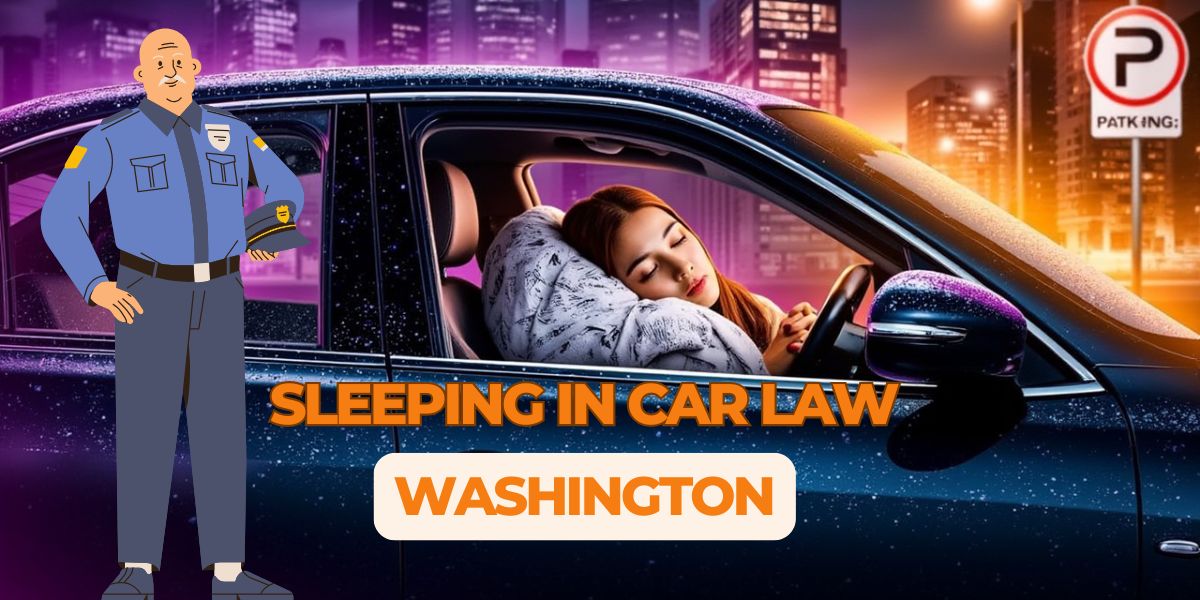Having to sleep in your car is a common occurrence, whether on a road trip, in an emergency, or between homes. But in Washington, is it legal to sleep in your car? The answer isn’t a simple “yes” or “no.” It depends on state laws, local ordinances, and other factors. Here’s what you need to know:
1. State Laws and Local Ordinances
No Statewide Ban
Washington State does not have a law explicitly prohibiting sleeping in your car. However, individual cities and counties have their own regulations, some of which restrict overnight parking or vehicle sleeping.
In major cities like Seattle, Tacoma, and Spokane, sleeping in a vehicle is either illegal or limited to specific areas.
For example, Seattle allows sleeping in cars, but there are restrictions on where you can park. Many neighborhoods, parks, and public areas have “No Overnight Parking” rules. To avoid fines or towing, always check local signs and familiarize yourself with municipal regulations.
2. Private vs. Public Property
Private Property Regulations
Parking on private property, such as a friend’s driveway or a business parking lot, generally requires the owner’s permission. Some businesses, like Walmart, may allow overnight parking, but this varies by location. Always ask for consent to avoid trespassing violations.
Public Property Restrictions
Public streets and parking lots often have time restrictions. In many places, you cannot park in the same spot for an extended period, even if you are not sleeping.
Washington highway rest stops allow parking for up to eight hours, making them a viable short-term rest location. However, these areas are not meant for extended stays or long-term living.
Indiana’s Sleeping in Vehicle Law Update: Here’s What the New Laws Say
3. Homelessness and Vehicle Residency
Washington faces significant homelessness challenges, and many individuals temporarily reside in their vehicles. In response, some cities, including Seattle, have introduced safe lots—designated areas where people can sleep in their cars without the risk of fines or towing.
These safe lots offer some level of security and provide basic amenities such as restrooms and trash disposal.
Sleeping in a car outside these designated areas, however, may lead to fines, vehicle impoundment, or additional legal consequences.
If you are experiencing homelessness, reaching out to local government agencies or nonprofits can help identify legal and safe parking options.
Georgia’s Sleeping in Vehicle Law Update: Here’s What the New Laws Say
4. Safety and Practical Considerations
Regardless of legalities, safety should always be a priority when sleeping in your car.
- Choose Safe Locations – Opt for well-lit areas with security cameras or frequent foot traffic.
- Lock Your Doors – Keep your vehicle secure while sleeping.
- Ventilation – Leave windows slightly cracked for airflow.
- Emergency Preparedness – Keep essential supplies such as water, snacks, and a first-aid kit in your car.
Safer Options: Rest stops, campgrounds, and business parking lots (with permission) are typically better alternatives than secluded or high-crime areas.
Texas Sleeping in Car Law Update: Here’s What the New Laws Say
Conclusion
Sleeping in your car in Washington exists in a legal gray area that varies by location. To avoid fines or penalties, research local ordinances before parking overnight.
If uncertain, check signage, ask property owners for permission, or consult local law enforcement to find legal parking areas.
By staying informed and choosing appropriate locations, you can ensure a safe and legal rest while traveling through Washington.








